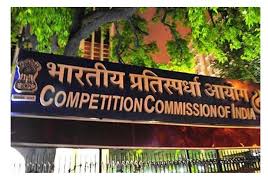Our Services

Competition Commission of India: BCI Not An Enterprise
Competition Commission of India, in a recent judgement, has
ruled that that the Bar Council of India (BCI) is not an enterprise.
The judgement came further to a complaint filed with Competition
Commission of India alleging that the Bar Council of India was indulging in an
abuse of its dominant position through Clause 28 of the Rules of Legal
Education, 2008 prescribing age limitation for entry into legal education, that
reads as under:
Clause [28] - Age on Admission:
(a) Subject to the condition stipulated by a university on this
behalf and the high degree of professional commitment required, the maximum age
for seeking admission into a stream of integrated Bachelor of Law degree
program, is limited to twenty years in case of general category of applicants
and to twenty-two years in case of applicants from SC, ST and other Backward
Communities.
(b) Subject to the condition stipulated by a University, and the
general social condition of the applicants seeking legal education belatedly,
the maximum age for seeking admission into a stream of Three Year Bachelor
Degree Course in Law, is limited to thirty years with right of the University
to give concession of five further years for the applicant belonging to SC or
ST or any other Backward community.
Mr. Thupili Raveendra Babu, a 52-year-old executive engineer in
the Central Public Works Department filed a complaint stating his intent to
pursue legal education post his retirement but was barred from it owing to
Clause 28 of the Rules of Legal Education, 2008, which banned General Category
above 30 years of age from pursuing a legal education. The complainant charged
that the BCI, in abuse of its predominant position, exercised arbitrary control
over the legal education and practice in India and particularly through the
Clause 28 of barring applicants over 30 years from pursuing law, was contradicting
Section 4 of the Competition Act, 2002.
Elaborating on this, the complainant stated that the BCI members
in the veil of Clause 28 intended to reduce competition to its voters and
consequently obstruct the legal profession. Accordingly, the declaration of
Clause 28 as illicit and void ab initio alongside a punishment to be imposed on
BCI for the infringement of Section 4 of the Act.
The Complainant also for interim directions under Section 33 of
the Act for suspending the impugned Clause 28. He submitted that allegedly
prima facie case of violation of Section 4 of the Act is established against
the BCI and the balance of convenience lies in his favour. He further states
that irreparable loss and harm would be caused to him and many other legal aspirants
for pursuing legal education in India, if the operation of Clause 28 is not
suspended.
In order to adjudicate the issue effectively, the Commission
thought it fit to examine, the status of the BCI as an enterprise within the
contours of the provisions of Section 2(h) of the Act, which defines the term
enterprise. After recording the various provisions of the Advocates and the
functions of Bar Council, the Commission came to the conclusion that BCI as an
Institution is discharging functions, which are regulatory in nature in respect
of the legal profession and not engaged in any activity relating to provision
of any kind of services.
The Commission also referred to a prior decision in Case No. 39
of 2014, In re: Dilip Modwil and Insurance Regulatory and Development Authority
(IRDAI), wherein the Commission had the occasion to examine, the status of
IRDAI as an ‘enterprise’ under the Act. The Commission had observed that any
entity can qualify within the definition of the term ‘enterprise’ if it is
engaged in any activity which is relatable to the economic and commercial
activities specified therein. It was further observed that regulatory functions
discharged by a body are not per se amenable to the jurisdiction of the
Commission.
The Commission finally observed that:
In the present matter, when the BCI appears to be discharging
its regulatory functions, it cannot be said to be an ‘enterprise’ within the
meaning of Section 2(h) of the Act and consequently, the allegations made in
relation to discharge of such functions which appears to be non-economic in
nature, may not merit an examination within the provisions of Section 4 of the
Act.
While addressing whether or not there is a prima facie case of
violation of the respective section of the Act, the Commission observed that,
there exists no prima facie case under the arrangements of Section 4 of the Act
and the data recorded is directed to be closed forthwith against the Opposite
Parties under Section 26(2) of the Act. Thus, no case for an award for
relief(s) as looked for under Section 33 of the Act emerges and thus it was
dismissed.
The complaint against the BCI was dismissed on no grounds for a
prima facie case of violation of Section 4 of the Competition Act, 2002.
| Research Intern | EduLegaL | mail@edulegal.in
EduLegaL View:
The judgement came further to a complaint filed
with Competition Commission of India alleging that the Bar Council of India was
indulging in an abuse of its dominant position through Clause 28 of the Rules
of Legal Education, 2008 prescribing age limitation for entry into legal
education.






